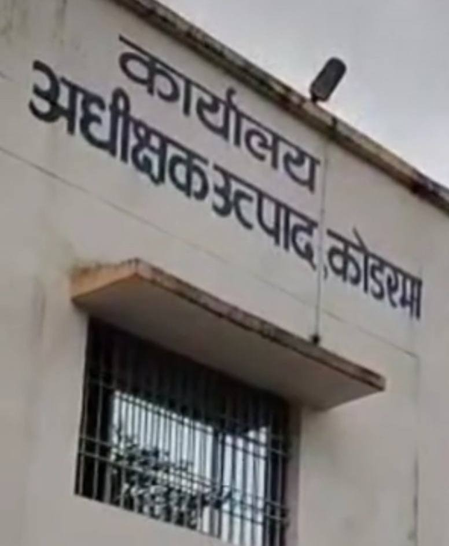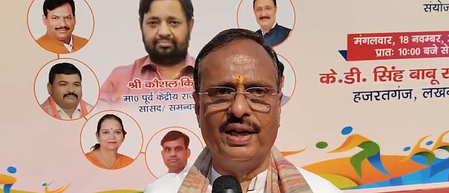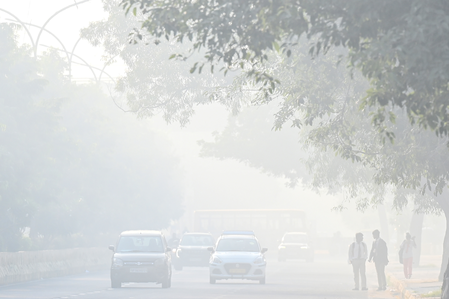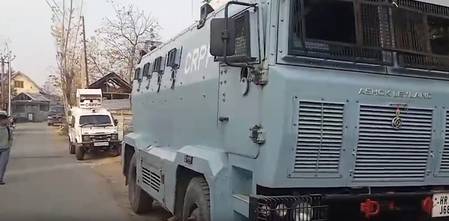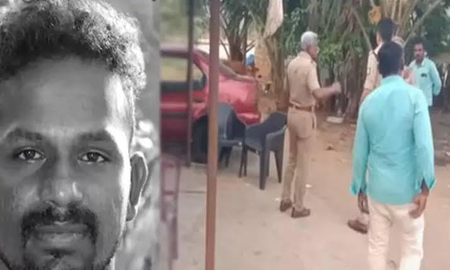
Chennai, March 29 (IANS) In yet another alleged police encounter in Tamil Nadu, the main accused in the murder of a police officer was shot dead by law enforcement personnel.
The deceased police officer, Muthukumaran (40), was a first-level constable from Kallapatti and served as the driver for the Usilampatti police inspector.
On March 27, after completing his duty, Muthukumaran visited a TASMAC liquor outlet in Muthaiyanpatti. At the store, he came across Ponvannan, a known ganja peddler, who was also consuming alcohol. A heated argument reportedly broke out between the two after Muthukumaran advised Ponvannan against drug peddling.
Later, when Muthukumaran left the shop with Rajaram, a local resident, and headed to a nearby garden, he was suddenly attacked from behind by a group of unidentified individuals who hurled stones at him, causing fatal head injuries. He died on the spot. Rajaram also sustained injuries in the attack and is currently undergoing treatment at the Usilampatti Government Hospital.
Following a preliminary investigation, police identified Ponvannan as the prime suspect in the murder. A special team was constituted to track him down. Intelligence inputs later revealed that Ponvannan was hiding in the forest area near Kambar.
According to reports, when police approached him for arrest, Ponvannan allegedly attacked them. In response, Usilampatti Town Inspector Anandhan opened fire, resulting in Ponvannan’s death.
It may be noted that, just a day before, on March 28, Muthukumaran’s family had staged a road blockade near the Usilampatti Government Hospital. They refused to accept the constable’s body, demanding the immediate arrest of the accused. Senior police officers assured the family that the culprit would be apprehended soon and deployed six special teams to nab Ponvannan.
The grieving family also appealed to Chief Minister M.K. Stalin for compensation and a government job for one of Muthukumaran’s family members. This incident follows closely on the heels of another police encounter earlier this week.
On March 26, Jaffer Gulam Hussain (28), a chain-snatching suspect, was shot dead by police near the Taramani railway station in Chennai. According to police sources, Jaffer, a native of Uttar Pradesh, was arrested a day earlier along with his accomplice Suraj at Chennai Airport while trying to flee to New Delhi. The duo was allegedly involved in numerous chain-snatching cases across the city.
The police reportedly took Jaffer to Taramani to recover stolen jewellery. During the operation, he allegedly attacked Inspector Buhari and attempted to escape. Police then opened fire, killing him on the spot. Jaffer was also wanted by the Maharashtra Police since 2020 in connection with nearly 50 chain-snatching cases.
Critics argue that the term “encounter” is often used as a euphemism for extrajudicial killings. They contend that it softens public perception of what may amount to “calculated police murder.” For decades, Tamil Nadu Police have allegedly enjoyed a level of impunity and immunity from accountability under successive political regimes.
Since the DMK government took office in May 2021, there have been more than 16 such encounter killings reported in the state. In a landmark 2014 ruling in the PUCL vs State of Maharashtra case, the Supreme Court mandated that every police encounter must be registered as a separate FIR and investigated by an independent agency to ensure transparency and accountability.
Further reinforcing this view, on September 27, 2023, Justice Bharatha Chakravarthy of the Madras High Court, in the Guruvammal vs Commissioner of Police, Madurai case (related to a 2010 encounter), expressed concern over a “disturbing trend” in Tamil Nadu.
He pointed out the increasing number of alleged criminals being shot dead or injured during police operations, and the suspicious frequency of accused individuals “falling” and sustaining fractures during arrests. These recent incidents have once again sparked debate over policing methods in the state and the urgent need for judicial oversight in encounter cases.
–IANS
aal/uk

